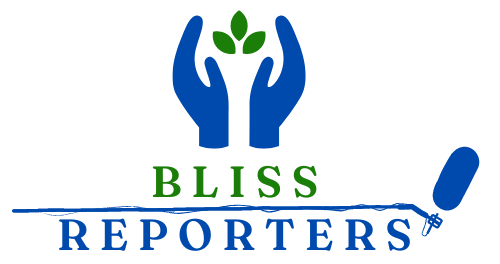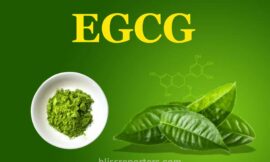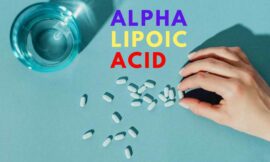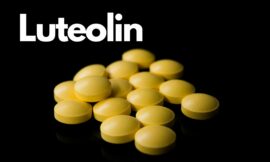Last updated on May 13th, 2023 at 05:59 am
Resveratrol is a naturally occurring plant compound that serves as a built-in defense and repair mechanism in plants, contributing to their survival. With recent advances in medicinal plant science, we have been able to identify and harness such mechanisms and compounds for our own needs. This has opened up new possibilities for utilizing the health benefits of resveratrol and other compounds found in plants.
Plant compounds are a rich source of natural disease-fighting agents that not only provide satiety but also offer several health benefits. Chronic inflammation and oxidative stress induced by an unhealthy diet are major contributors to several diseases, including cardiovascular diseases, neurodegenerative diseases, and tumors. Fortunately, plant compounds such as resveratrol exhibit antioxidant and anti-inflammatory properties that can help prevent or reduce the risk of developing these diseases.
This Bliss report will help you to understand resveratrol, its uses, and some lesser-known precautions that should be taken into consideration before using it for its health benefits.
What Is Resveratrol?
3,5,4′-trihydroxy-trans-stilbene or Resveratrol is a stilbenoid that is produced by plants as a defense mechanism against injury and pathogenic attack. Stilbenoids have antifungal, antibacterial, and antioxidant properties, which can help prevent inflammatory health issues.
It is naturally present as a polyphenol in over 70 plant species, including those found in our daily diets such as peanuts, grapes, and berries (blueberries, raspberries, cranberries). Although present in many plants, the highest concentration of resveratrol is found in Japanese knotweed (Polygonum Cuspidatum), known for its anti-cancer and anti-aging properties. Today, most resveratrol supplements are made from Japanese knotweed.
Historically, resveratrol-containing plants were used in ancient Japanese and Chinese medicines to treat age-related diseases. In modern times, resveratrol was first isolated in Japan by Michio Takaoka from the plant Veratrum Grandiflorum (white hellebore), which is a plant in the genus Veratrum and also the inspiration for the name resveratrol.
Resveratrol started to gain popularity as a supplement in the late 90s. Later, a few research studies conducted in the early 2000s found that resveratrol can increase the lifespan of some organisms, earning it the title “fountain of youth.”
Since then, several short-term research studies have shown that resveratrol has several health benefits, which are mainly due to its anti-inflammatory and antioxidant properties.
The major findings from these studies show that the free radical scavenging activity of resveratrol is higher than many other antioxidants. In addition to that, it also activates a group of proteins called sirtuins, specifically SIRT1, which is a protein involved in DNA repair, aging, and metabolism. When resveratrol activates SIRT1, it can lead to deacetylation of the histones, which changes how the DNA is stored in the cell nucleus. These changes in the cell nucleus may alter gene expression by affecting DNA transcription. Deacetylation of histones can be beneficial against certain diseases. However, depending on age, health, and gender, it may also lead to certain diseases, which makes resveratrol a double-edged sword that has to be used carefully.
A drawback of resveratrol is its low bioavailability, as it metabolizes at a very high rate and does not stay in the body for much longer. In the liver, resveratrol gets converted into resveratrol glucuronides and resveratrol sulfates, which are then excreted out of the body.
Benefits of Resveratrol
There are several health conditions in which supplementation with resveratrol is supposed to be helpful. However, some health benefits of resveratrol are better documented than others.
Resveratrol for the management of Diabetes
Diabetes is a chronic metabolic disease that is accompanied by several other health issues including hyperlipidemia and obesity. Insulin resistance caused by diabetes has adverse effects on other organs leading to a decreased quality of life and shortened life span.
In several studies, resveratrol supplementation in type 2 diabetic patients resulted in increased insulin sensitivity, better glucose metabolism, and reduced chances of pancreatic cell damage. Additionally, it helped lower the risk of diabetic microvascular complications which include diabetic nephropathy, retinopathy, and neuropathy.
In clinical trials, type 2 diabetes patients were given resveratrol supplementation for over 12 months while their vitals, including insulin and blood glucose levels, were monitored. The results showed that resveratrol supplementation had positive effects on insulin and blood glucose levels. Furthermore, it was observed that the insulin being produced was lower while fasting blood sugar levels remained normal, indicating an increase in insulin sensitivity.
Resveratrol helps with Weight loss and Obesity
Resveratrol has been found to have weight-reducing properties, and a meta-analysis further supports this claim. The study found that resveratrol supplementation led to significant decreases in body weight, BMI, fat mass, and waist circumference, as well as significant increases in lean mass. However, the analysis also found no significant effect on the levels of hunger-regulating hormones which include leptin and adiponectin.
While these results suggest that resveratrol may be beneficial for weight management and improving body composition, further research is needed to confirm these findings. As the data is not conclusive on the effects of resveratrol in reducing weight, without adding other supplements.
Resveratrol Impact on the Liver
Liver damage causes inflammation and can result in the release of pro-inflammatory molecules such as il-6 and TNF alpha, these molecules not only affect the liver but also can cause damage to other organs including the heart and kidneys.
Resveratrol has been shown to be hepatoprotective and protects the liver from oxidative stress caused by insulin resistance and hepatic ischemia-reperfusion injury. A study conducted on an animal model found that resveratrol effectively controlled oxidative damage caused by malondialdehyde and inhibited the pathway activation of Nuclear Factor kappa B (NF-κB). In addition to that, resveratrol restored the levels of several important antioxidants, including glutathione, glutathione-S-transferase, quinone reductase, catalase, and superoxide dismutase, which helped to reduce oxidative stress in the liver and prevent further damage.
Another area of focus for hepatoprotective properties of resveratrol has been non-fatty-acid-liver-disease (NFALD) and in some studies, it has been shown to have some benefits against NFALD. NFALD is a condition that resembles the effect of alcohol on the liver, however, it is not caused by alcohol as the name suggests, rather it is identified by the inactivation of AMP-activated protein kinase, inflammation, insulin resistance, and a fatty liver.
A meta-analysis of resveratrol supplementation in NAFLD involving more than 100 patients showed some positive effects of resveratrol on liver inflammation markers along with other markers caused by NAFLD.
Resveratrol helps in several Cancer Therapies
The anti-oxidant, anti-microbial, and anti-inflammatory activity of resveratrol, a phytoalexin antioxidant makes it a perfect compound to be used as an adjunct therapy in the treatment of several cancers.
The anti-carcinogenic activities of resveratrol work For:
- Colorectal cancer: By Inhibiting the β-catenin signaling pathway and nuclear translocation via perturbation of MALAT1 lncRNA.
- Skin Cancer: ByDownregulating IKK-induced TNF-β, leading to inhibition of cancer cell proliferation by deactivating NF-ḳB.
- Breast Cancer: By Inhibiting p-PI3K/p-AKT-mediated FOXO3a nuclear accumulation.
- Lung Cancer: Suppressing of Src-STAT3 phosphorylation, leading to apoptosis of cancer cells.
It also works to suppress TGF-β/Smad-induced EMT and Snail transcription factor expression and inhibits AKT/MAPK-induced HIF-1α activation and increases its degradation via ubiquitination. These effects of resveratrol on cancer-causing factors have been tested in some clinical trials and many studies, especially for colorectal cancer.
However, more large-scale studies are required to fully understand the effects of resveratrol in its ability to induce cell death and increase oxidation in cancer cells.
Cardiovascular Disease
Heart disease is one of the major contributors to disease-related deaths. Stress, lifestyle, and chronic inflammation may lead to impaired heart function due to an increase in inflammatory markers such as TNF-α, IL-6, and CRP levels.
In a meta-analysis of 6 trials on the efficacy of resveratrol in controlling and limiting the effects of TNF-α, IL-6, and CRP on heart health, researchers found that resveratrol successfully reduced TNF-α, and CRP levels in the patients. However, the study also noted that IL-6 levels were only slightly reduced.
Sources of Resveratrol
Wine:
- Red wine
- Rosé wine
- White wine
- Sparkling wine
- Fortified wine
Grapes:
- Red grapes
- White grapes
- Must
- Grape juice
Berries:
- Blueberries
- Bilberries
- Cranberries
- Raspberries
- Black mulberries
Other plant-based sources:
- Peanuts
- Pistachios
- Peanut butter
- Pomegranate
- Blue corn
- Red onions
- Cocoa
- Dark Chocolate
- Itadori tea
- Cranberry juice
*The food sources listed here contain a very small amount of resveratrol which is also low in bioavailability. Most research on the benefits of resveratrol is on its supplements made from Japanese knotweed which is high in resveratrol concentration.
Resveratrol Dosage
Resveratrol is a phytonutrient that is present in several foods in minute amounts and is not recognized as an essential nutrient. Although, The dosage range of resveratrol can be determined by looking at various trials and then used appropriately under proper guidance.
For general health benefits: 5-1000 mg.
Adverse effects of high-dose Resveratrol
- The high antioxidant activity of resveratrol can be a double-edged sword as sometimes it is used in high concentrations in skin care and health care products which can lead to DNA damage, impaired DNA repair, and potentially have pro-oxidant effects. In some in-vitro research on the effects of high-dose resveratrol, it showed to increase DNA mutagenesis and DNA damage.
- Resveratrol can interfere with hormones and may cause hormonal imbalance. It has been shown to lower sperm count and in a few research studies, it was found to cause pregnancy issues.
- Resveratrol can cause liver and kidney damage due to its pro-oxidative potential at high doses, it may change the way drugs are filtered and metabolized by the kidneys and the liver.
Fortunately, the adverse effects of resveratrol are from studies that were done on animal models or in-vitro with exceptionally high doses. While studies with low-dose resveratrol show positive effects, it is always advised to use it under proper guidance.
Resveratrol Side Effects
Resveratrol is generally safe in low dosages (up to 1000mg ), and in some studies, short-term use of up to 5000 grams of resveratrol has had positive effects with minimal side effects. Some common side effects of resveratrol are:
- Gastrointestinal side effects: Nausea, diarrhea, and stomach upset.
- Headache: A possible side effect of resveratrol.
- Possible Allergic reactions: Hives, itching, or swelling.
- Interaction with blood thinners: Resveratrol can increase the risk of bleeding, as it can interfere with drugs like warfarin.
Takeaways
Resveratrol is a phytonutrient, that has antioxidant and anti-inflammatory properties and is present in several plants, including grapes, berries, and Japanese knotweed.
Historically, resveratrol containing plants and herbs were used in ancient Chinese and Japanese medicines to treat age-related diseases. Resveratrol as a supplement gained popularity as a “fountain of youth” after research studies showed they can increase the life span of certain organisms.
Resveratrol has several health benefits that include diabetes, weight management, and liver damage, it helps reduce insulin resistance, body weight, BMI, fat mass, and waist circumference and improves glucose metabolism. However, it also has some adverse effects at high doses and may cause DNA damage, fertility issues, and organ damage by promoting oxidation. The bioavailability of resveratrol is very low, which makes it metabolize at a high rate and not stay in the body for long.
More research is needed to confirm its positive effects on health. Resveratrol has to be used carefully in high doses as it is a double-edged sword that can lead to certain diseases, depending on age, health, and gender.





